
-
 Sunderland rout hapless Burnley
Sunderland rout hapless Burnley
-
Costa Rican president-elect looks to Bukele for help against crime
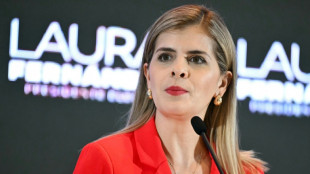
-
 Hosts Australia to open Rugby World Cup against Hong Kong
Hosts Australia to open Rugby World Cup against Hong Kong
-
New York records 13 cold-related deaths since late January

-
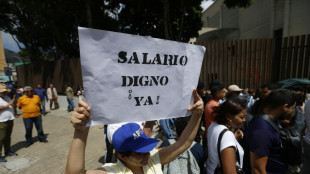 In post-Maduro Venezuela, pro- and anti-government workers march for better pay
In post-Maduro Venezuela, pro- and anti-government workers march for better pay
-
Romero slams 'disgraceful' Spurs squad depth

-
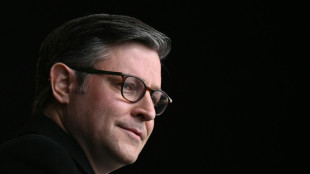 Trump urges 'no changes' to bill to end shutdown
Trump urges 'no changes' to bill to end shutdown
-
Trump says India, US strike trade deal
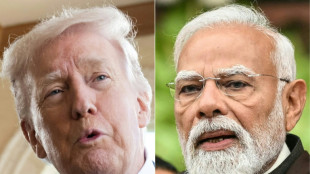
-
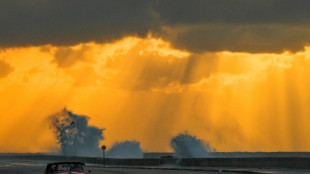 Cuban tourism in crisis; visitors repelled by fuel, power shortages
Cuban tourism in crisis; visitors repelled by fuel, power shortages
-
Liverpool set for Jacquet deal, Palace sign Strand Larsen on deadline day

-
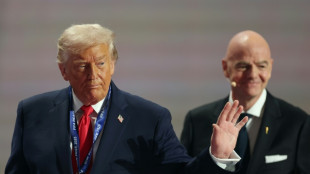 FIFA president Infantino defends giving peace prize to Trump
FIFA president Infantino defends giving peace prize to Trump
-
Trump cuts India tariffs, says Modi will stop buying Russian oil
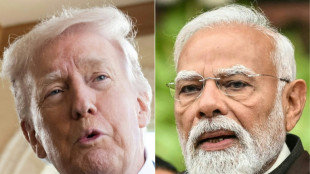
-
 Borthwick backs Itoje to get 'big roar' off the bench against Wales
Borthwick backs Itoje to get 'big roar' off the bench against Wales
-
Twenty-one friends from Belgian village win €123mn jackpot

-
 Mateta move to Milan scuppered by medical concerns: source
Mateta move to Milan scuppered by medical concerns: source
-
Late-January US snowstorm wasn't historically exceptional: NOAA

-
 Punctuality at Germany's crisis-hit railway slumps
Punctuality at Germany's crisis-hit railway slumps
-
Gazans begin crossing to Egypt for treatment after partial Rafah reopening

-
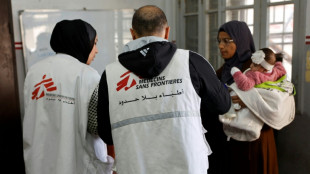 Halt to MSF work will be 'catastrophic' for people of Gaza: MSF chief
Halt to MSF work will be 'catastrophic' for people of Gaza: MSF chief
-
Italian biathlete Passler suspended after pre-Olympics doping test

-
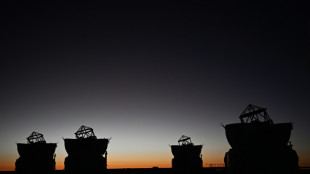 Europe observatory hails plan to abandon light-polluting Chile project
Europe observatory hails plan to abandon light-polluting Chile project
-
Iran president orders talks with US as Trump hopeful of deal
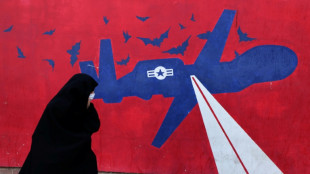
-
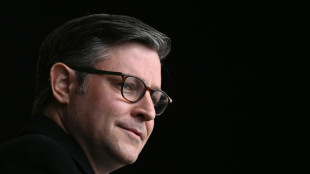 Uncertainty grows over when US budget showdown will end
Uncertainty grows over when US budget showdown will end
-
Oil slides, gold loses lustre as Iran threat recedes
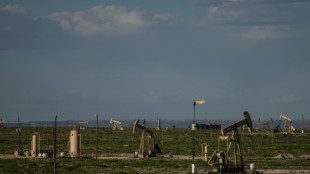
-
 Russian captain found guilty in fatal North Sea crash
Russian captain found guilty in fatal North Sea crash
-
Disney earnings boosted by theme parks, as CEO handover nears
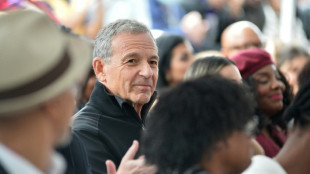
-
 Sri Lanka drop Test captain De Silva from T20 World Cup squad
Sri Lanka drop Test captain De Silva from T20 World Cup squad
-
France demands 1.7 bn euros in payroll taxes from Uber: media report

-
 EU will struggle to secure key raw materials supply, warns report
EU will struggle to secure key raw materials supply, warns report
-
France poised to adopt 2026 budget after months of tense talks
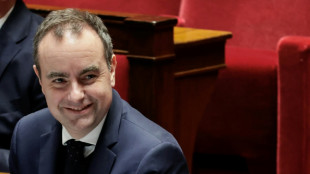
-
 Latest Epstein file dump rocks UK royals, politics
Latest Epstein file dump rocks UK royals, politics
-
Arteta seeks Arsenal reinforcement for injured Merino

-
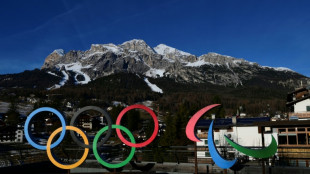 Russia uses sport to 'whitewash' its aggression, says Ukraine minister
Russia uses sport to 'whitewash' its aggression, says Ukraine minister
-
Chile officially backs Bachelet candidacy for UN top job
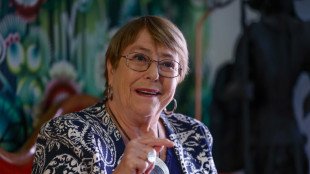
-
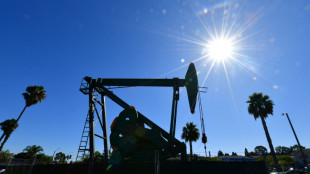 European stocks rise as oil tumbles, while tech worries weigh on New York
European stocks rise as oil tumbles, while tech worries weigh on New York
-
England captain Itoje on bench for Six Nations opener against Wales

-
 Rahm says golfers should be 'free' to play where they want after LIV defections
Rahm says golfers should be 'free' to play where they want after LIV defections
-
More baby milk recalls in France after new toxin rules

-
 Rosenior will not rush Estevao return from Brazil
Rosenior will not rush Estevao return from Brazil
-
Mercedes ready to win F1 world title, says Russell

-
 Germany hit by nationwide public transport strike
Germany hit by nationwide public transport strike
-
Barca coach Flick 'not happy' with Raphinha thigh strain

-
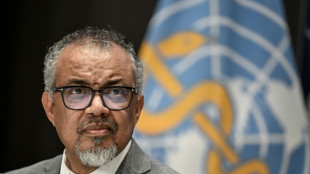 WHO chief says turmoil creates chance for reset
WHO chief says turmoil creates chance for reset
-
European stocks rise as gold, oil prices tumble
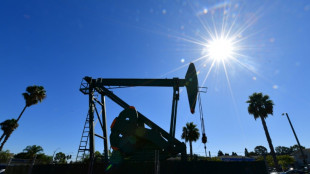
-
 Rink issues resolved, NHL stars chase Olympic gold at Milan
Rink issues resolved, NHL stars chase Olympic gold at Milan
-
S. Korea celebrates breakthrough K-pop Grammy win for 'Golden'

-
 Rodri rages that officials 'don't want' Man City to win
Rodri rages that officials 'don't want' Man City to win
-
Gaza's Rafah crossing makes limited reopening after two-year war

-
 African players in Europe: Ouattara dents Villa title hopes
African players in Europe: Ouattara dents Villa title hopes
-
Liverpool beat Chelsea to Rennes defender Jacquet - reports


Investors agree $10 billion for controversial Uganda oil project
Chinese and French oil giants finally sealed a $10-billion deal Tuesday to unlock Uganda's energy resources and build a vast regional oil pipeline, a mega-project that has incensed environmental groups.
The so-called Final Investment Decision should pave the way for the export of millions of barrels of black gold that was first discovered in 2006 in Uganda, one of the world's most biodiverse regions.
The decision gives the final go-ahead to the long-delayed project and was hailed by Ugandan President Yoweri Museveni as an major economic boost for the landlocked East African country where many live in poverty.
Critics charge however that the ambitious scheme threatens the livelihoods of tens of thousands of people and fragile ecosystems in the heart of Africa.
The $10 billion investment deal was announced at a ceremony in Kampala by the heads of France's TotalEnergies and the local arm of the China National Offshore Oil Corporation (CNOOC).
The companies want to extract the huge crude oil reserves under Lake Albert, a 160-kilometre (100-mile) long natural border between Uganda and the Democratic Republic of Congo.
- 'A masterpiece' -
The oil would be pumped from Uganda in a 1,443-kilometre (900-mile) heated pipeline -– said to become the longest of its type when completed -- through Tanzania to the Indian Ocean port of Tanga.
TotalEnergies chairman and CEO Patrick Pouyanne described the controversial pipeline as a "masterpiece".
"Today is the day we commit to invest $10 billion in the Tilenga and Kingfisher projects and the 1,443-km long pipeline," he said.
"From today with the FID, the project will fully enter into the construction phase."
Museveni admitted he had been impatient about the long negotiating process to get the project off the ground, but said the pipeline could become a "nucleus" for East African oil.
The project has been hit by various obstacles including wrangling over tax agreements and a change of heart over the location of the pipeline which was initially due to go through Kenya.
Museveni also dismissed the concerns of environmental groups.
"Let the NGOs go and sleep in the bush if they want... There is nothing we are hiding."
Lake Albert lies atop an estimated 6.5 billion barrels of crude, of which about 1.4 billion barrels are currently considered recoverable.
Uganda's first oil is expected to flow in 2025 -- almost two decades after the reserves were discovered -- with full-scale commercial production planned for the following year when 230,000 barrels a day of the particularly viscous crude are expected to be pumped.
- 'Devastating' impact -
In Uganda, the drilling is located in several nature reserves, one of which extends to Murchison Falls, the country's largest national park.
TotalEnergies, formerly Total, said last year it had taken steps to reduce the project's impact on people and the environment, but conservation groups charge it will be devastating.
The pipeline project would be "displacing thousands of households, endangering water resources for millions of Ugandans and Tanzanians, devastating vulnerable ecosystems and pushing the world further into climate chaos," campaign group 350Africa.org's regional director Landry Ninteretse said in a statement.
A report last year by the International Federation for Human Rights (FIDH) based on studies with Oxfam said the project would affect more than 12,000 families and communities had no idea if their land would be lost.
A consortium of Ugandan and French NGOs filed a lawsuit in 2019 against the French company accusing it of failing to abide by legal obligations to protect the environment and the rights of the people affected by the project.
In December, the Court of Cassation, France's highest, ruled the case should be heard in a civil court rather than assigned to a commercial tribunal, in what the activists said was an important victory.
C.Meier--BTB



